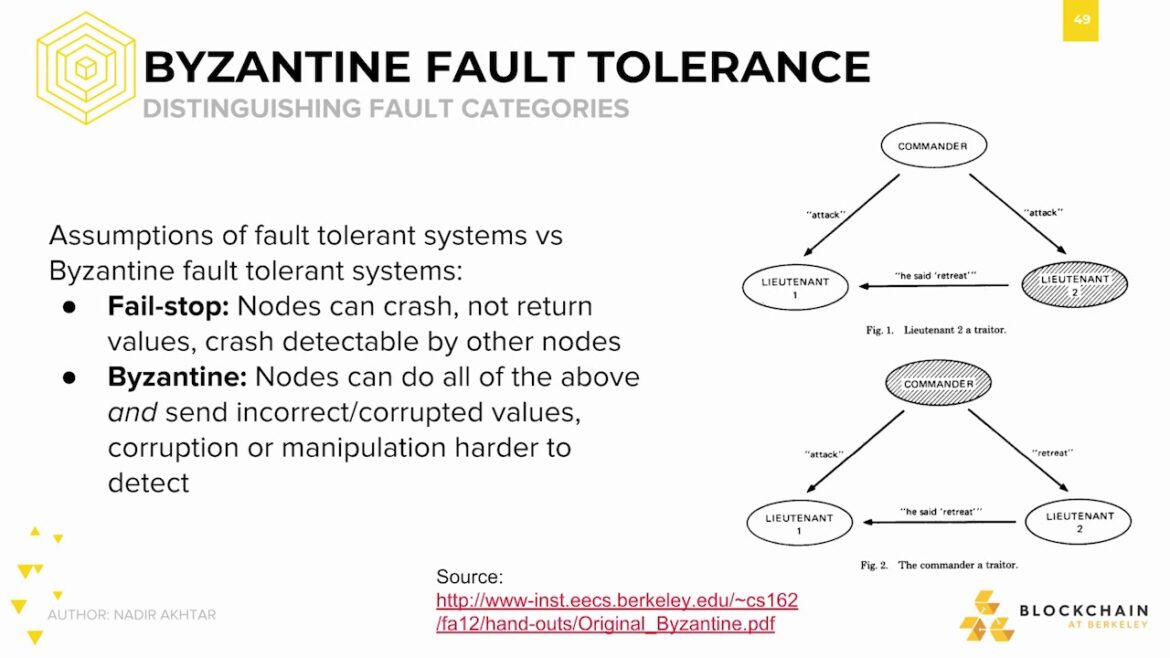Byzantine Fault Tolerance (BFT) is a method of maintaining computer system availability and consistency in the presence of faults. It refers to any distributed computing algorithm that can tolerate arbitrary faults caused by external adversaries, or Byzantine failures. In other words, BFT ensures that a distributed network will be able to reach consensus despite malicious attacks by outside actors on its components.
To understand how this works, it’s necessary to look at what happens when nodes are not entirely honest with each other within a network: if some of them send wrong messages while others don’t know which ones might be faulty, they may all disagree about the same thing and end up making incorrect decisions based on false information. This is known as an “Byzantine failure”. To prevent such scenarios from occurring, systems must implement methods for detecting these kinds of errors before reaching consensus and taking action accordingly.
This is where Byzantine fault tolerance comes into play; using algorithms like PBFT (Practical Byzantine Fault Tolerance), networks are able to detect inaccurate data sent from misbehaving nodes in order to avoid erroneous results stemming from those sources – thereby preventing costly mistakes due to unreliable information being accepted as valid input for decision-making processes within the system itself. For example, cryptocurrencies rely heavily on BFT protocols such as Proof-of-Stake (PoS) or Delegated Proof-of-Stake (DPoS). These protocols allow users who own tokens/coins associated with a particular cryptocurrency platform access rights proportional their amount held – allowing them vote according their stake in regards important matters affecting said platform’s development trajectory while protecting against dishonest players attempting take control through fraudulent means such Sybil attacks or double spending attempts – thus ensuring fairness throughout system operations even under adversarial conditions present online ecosystems today..
In conclusion , Byzanitine Fault Tolerance offers decentralized networks robustness against potentially damaging threats posed variously structured malicious agents looking disrupt normalcy otherwise secure blockchain environments . As more applications come digital currency space rise time , having reliable fail safe mechanisms place becomes ever increasingly crucial element proper infrastructure construction ensure trustworthiness long term growth potential projects worldwide .


